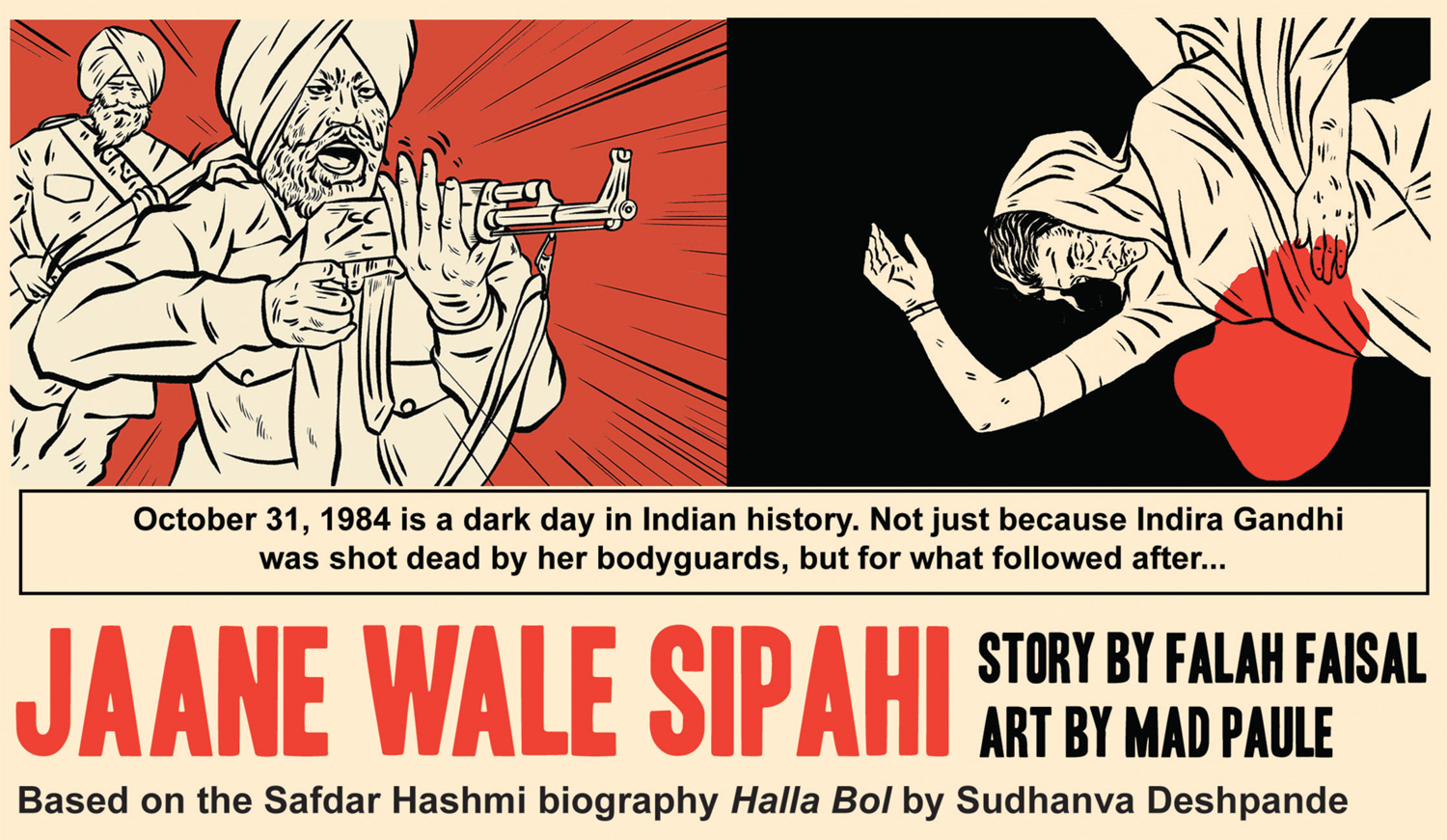
Vol 2 Issue 2 | July-Sept 2022
Jaane Wale Sipahi
Story by Falah Faisal | Art by Mad Paule
This story was based on an episode described in the Safdar Hashmi biography ‘Halla Bol!’ by Sudhanva Deshpande.
Safdar: a man of many talents
Safdar Hashmi wore several hats – he was an actor, a lyricist, an activist and a theorist. But arguably his most important role was as the founder of Jana Natya Manch (People’s Theatre Front; JANAM for short). A Communist playwright and director, he is best known for the work he did in street theatre, performing plays like Machine, Aurat and Halla Bol. The last of these was instrumental in rallying workers for one of the largest strikes in Delhi’s history. His revolutionary work led to his assassination by the Indian National Congress during a performance of this play on January 1, 1989 in Jhandapur.
Origins of a song
The song “Jaane wale sipahi se poochho” sung by the theatre group Parcham in this comic and in reality, first appeared in the 1960 Bollywood film Usne Kaha Tha, directed by Moni Bhattacharjee. The lyrics of the song were written by Makhdoom Mohiuddin, a Hyderabadi Urdu poet and Marxist political activist, during the Second World War. Sumangala Damodaran, one of the members of Parcham, recalls learning to sing the song from Safdar Hashmi. The group would sing it regularly. She also remembers that the compositions of Mohiuddin were often sung by Parcham following the 1984 anti-Sikh riots in Delhi.
The power of protest music
Music has the power to move the hearts of people like little else can. It can reach people across political and social divides and bind together a motley band of people wanting to make a change by giving them an anthem to sing in a resounding chorus. Think of Iqbal Bano singing “Hum dekhenge” in a banned black saree to shake a stadium and a state; or “We shall overcome” swelling over the March on Washington with Martin Luther King, Jr, providing a musical backdrop to the demand for equal rights. More recently, the song “Do it now!”, sung to the tune of “Bella ciao”, has become a global climate change protest song –sung everywhere from the Swiss Federal Assembly in Bern, Switzerland, to the streets of Bangalore, Bombay and Goa!

